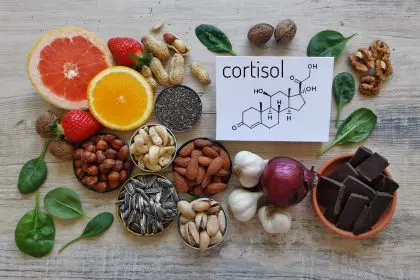The diverse world of yogurt products has emerged as a fascinating subject of nutritional research, with each variety offering unique health benefits that extend far beyond basic probiotics. Modern dairy science is revealing how different yogurt types provide distinctive benefits, not just for gut health, but for overall wellness. From dairy to plant-based options, understanding the various nuances in nutritional composition and fermentation benefits opens new doors to healthier eating practices.
Nutritional complexity
The richness of yogurt’s nutritional profile is more than skin deep. While all yogurt contains probiotics, the diversity of ingredients and fermentation methods creates unique nutrient combinations. Yogurt offers a mix of essential nutrients that contribute to various bodily functions, including digestion, immune support, and metabolic health. The fermentation process also creates bioactive compounds, which are known to positively impact inflammation and metabolic processes.
Beyond probiotics, yogurt is also a significant source of protein, particularly when compared to other dairy products. The protein content in yogurt can vary depending on the type of milk or base used, making it essential to choose the right variety for individual nutritional needs.
Fermentation benefits
Fermentation is at the heart of what makes yogurt a beneficial food. The bacterial cultures introduced during the fermentation process create a variety of bioactive compounds, which have the potential to enhance nutrient absorption. From traditional dairy yogurts to newer plant-based options, the fermentation process optimizes the nutritional profile by transforming complex carbohydrates into simpler forms that are easier to digest and more readily absorbed.
This process also contributes to the development of beneficial compounds such as short-chain fatty acids, which have anti-inflammatory effects and promote gut health. Depending on the bacterial strains used, fermentation can increase the availability of certain nutrients, like calcium and B-vitamins, ensuring that each variety of yogurt can offer distinct health benefits.
Yogurt’s protein content is one of its most noteworthy aspects. However, the amount and quality of protein vary considerably across different yogurt types. Dairy-based yogurts are particularly rich in high-quality protein, offering all nine essential amino acids that the body cannot produce on its own. Plant-based yogurt alternatives, while also rich in protein, may have slightly lower concentrations of essential amino acids.
Greek yogurt, for instance, is known for its particularly high protein content compared to regular yogurt. This is due to its straining process, which removes excess liquid, thereby concentrating the protein. Plant-based options such as soy or almond milk yogurts may have protein content comparable to dairy, but the protein quality varies due to the differing amino acid profiles of plants.
Probiotic diversity
Probiotics, or beneficial bacteria, are often the primary reason people gravitate toward yogurt. However, not all probiotics are created equal. Different yogurt varieties contain distinct strains of probiotics, each with its own effects on gut health. Lactobacillus bulgaricus and Streptococcus thermophilus are the most common strains used in dairy yogurts, but other varieties may contain additional strains like Lactobacillus acidophilus, Bifidobacterium bifidum, or Lactobacillus reuteri.
Research underscores the importance of probiotic diversity in maintaining a balanced gut microbiome. Each strain interacts with the gut microbiota in different ways, providing various benefits ranging from improving digestion to boosting the immune system. Plant-based yogurts, which typically use fermentation agents that differ from those in dairy, offer another dimension to probiotic diversity, contributing unique strains that may provide additional health benefits.
The micronutrient content of yogurt also varies significantly depending on the base ingredient and production method. For example, calcium is an essential nutrient found in dairy-based yogurt, but its absorption is often enhanced when paired with fermentation processes that break down phytic acid. This is particularly true for calcium-fortified plant-based yogurts, which can offer an excellent alternative for those who avoid dairy.
Vitamins like B12, riboflavin, and vitamin D are commonly found in yogurt, though their levels differ across varieties. For instance, plant-based yogurts may be fortified with vitamin D, an essential nutrient that aids in calcium absorption, offering a notable benefit for those on a vegan or vegetarian diet.
Minerals such as potassium and magnesium are also present in yogurt, contributing to its cardiovascular health benefits. The presence of these minerals varies depending on the base ingredients, with some plant-based yogurts offering higher magnesium levels than traditional dairy versions.
Culinary applications
Yogurt’s versatility in the kitchen makes it an ideal ingredient for a wide variety of dishes. Beyond traditional breakfast bowls, yogurt can be incorporated into smoothies, dressings, desserts, and even savory dishes like soups and stews. The tangy flavor of yogurt pairs well with a range of ingredients, adding texture and richness without the need for excessive fats or sugars.
Greek yogurt, in particular, has gained popularity as a healthy alternative to sour cream and mayonnaise in many culinary applications. Plant-based yogurts are often used in dairy-free versions of classic dishes, offering similar texture and flavor profiles without compromising on taste.
Sustainable nutrition
In addition to its health benefits, yogurt is also a sustainable food choice. Dairy products, particularly those from grass-fed cows, have a lower environmental impact when compared to other protein sources like beef or poultry. Moreover, plant-based yogurts offer an environmentally friendly alternative, requiring fewer natural resources to produce.
Choosing sustainable yogurt options supports a circular food system, benefiting both human health and the planet. Whether opting for traditional dairy or plant-based alternatives, yogurt can be a nutritious and eco-conscious addition to any diet.











